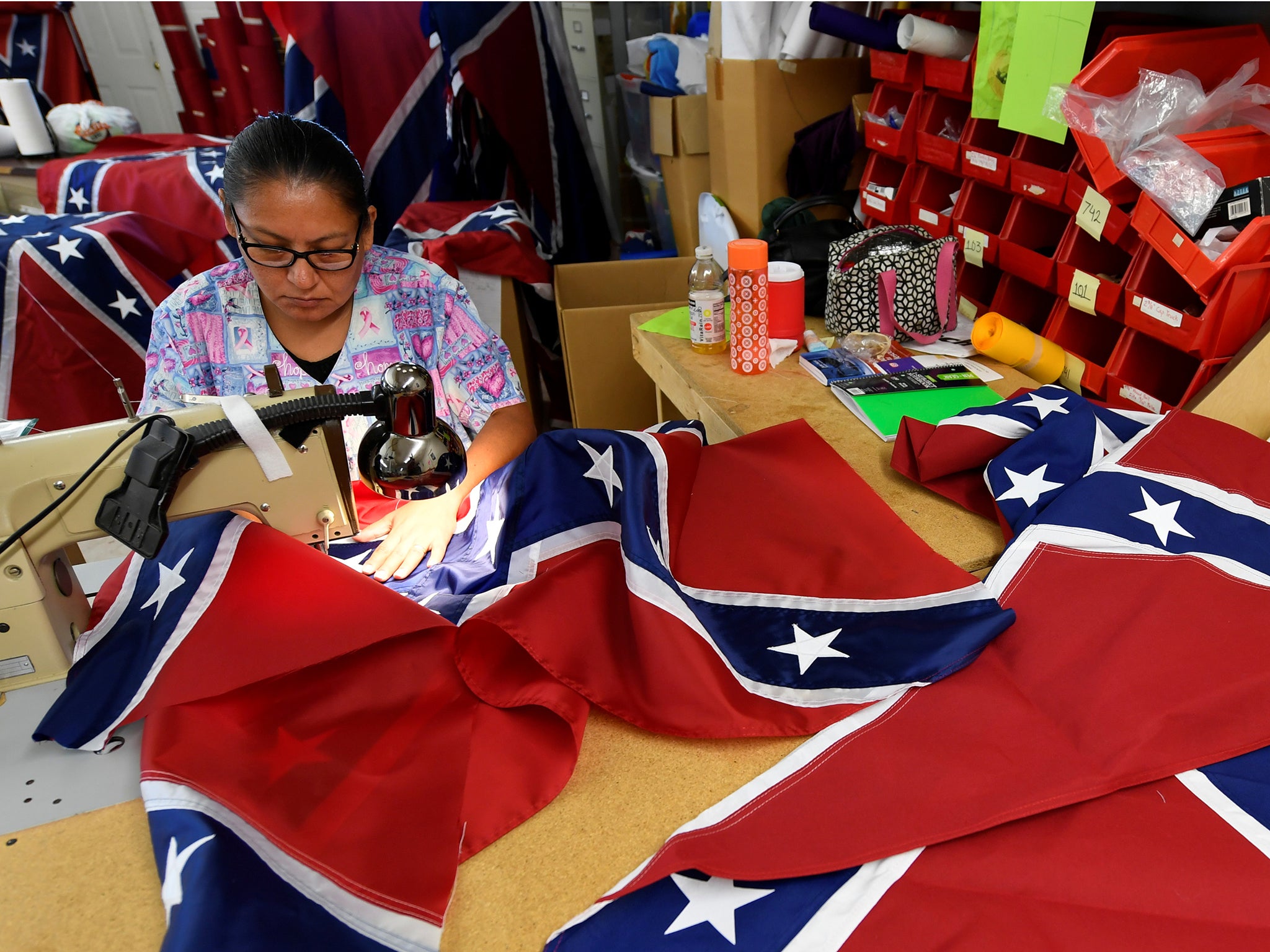Confederate flag sales surge after Charlottesville violence
Retailers report demand surging in wake of far-right rallies

Your support helps us to tell the story
From reproductive rights to climate change to Big Tech, The Independent is on the ground when the story is developing. Whether it's investigating the financials of Elon Musk's pro-Trump PAC or producing our latest documentary, 'The A Word', which shines a light on the American women fighting for reproductive rights, we know how important it is to parse out the facts from the messaging.
At such a critical moment in US history, we need reporters on the ground. Your donation allows us to keep sending journalists to speak to both sides of the story.
The Independent is trusted by Americans across the entire political spectrum. And unlike many other quality news outlets, we choose not to lock Americans out of our reporting and analysis with paywalls. We believe quality journalism should be available to everyone, paid for by those who can afford it.
Your support makes all the difference.Confederate battle flag sales have rocketed in the US since the violence at a white supremacist rally in Charlottesville led to the death of a 32-year-old mother.
Retailers have reported a surge in demand for the Confederate flag and although most US major sellers no longer produce the flag because of its controversial history, imports from China and other countries have filled the rising demand.
The trend has not escaped Chris Ackerman's Civil war memorabilia shop in Pennsylvania.
Following the events in Charlottesville, Mr Ackerman said demand jumped fourfold.
His store and website sell handmade flags to re-enacators for $400 (£310) and $40 (£31) for those shipped from China.
Mr Ackerman told Reuters he sold as many as 40 flags a week, an increase he compared to the surge in gun sales when gun control measures are feared.
In another shop called Dixie Outfitters in Odum, Georgia, flags ordered also quadrupled.
According to its website, the shop has been "preserving Southern heritage since 1861" and the owner Dewey Barberm said he sells as many as 15,000 Confederate flags a year, many of which are imported from overseas.
At Alabama Flag and Banner, one of the few remaining US makers of the Confederate flag, sales reached 150 in a single day last week, a quarter of the number of average annual sales.
Its owner Belinda Melson-Kennedy, whose distant relative fought for the Confederacy, said she disliked the flag being used by white supremacists but that it remained an important part of Southern history and culture.
Large retailers stopped selling the flag in 2015 after an image emerged of Dylann Roof, a white supremacist who killed nine members of a Bible study group at a predominantly black church in South Carolina, clutching one of the flags.
Since then, the debate over symbols of the pro-slavery confederacy has intensified. While civil rights activists say they promote racism, others argue the flags are part of Southern heritage and history.
The events in Charlottesville when white supremacist protesters clashed with counter-protesters have brought back a longstanding debate in the US over race and the legacy of slavery.
The rally was organised to protest against plans to remove a statue of Confederate General Robert E Lee but it turned violent and led to the death of Heather Heyer, when a car ploughed into a crowd of counter-protesters.
Since then, activists across the country have pulled down and urged authorities to remove Confederate monuments from town centres and public places.
Additional reporting by agencies.
Join our commenting forum
Join thought-provoking conversations, follow other Independent readers and see their replies
Comments